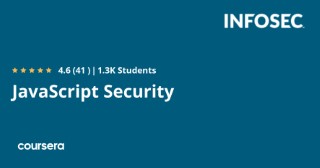Introduction to Programming Paradigms
Explore a range of programming paradigms, including imperative and declarative, procedural, functional, and object-oriented programming.
Course Description
Ready for a paradigm shift to what you know about programming? In
, you will learn the basics of various programming paradigms, including imperative and declarative programming, procedural programming, functional programming, and object-oriented programming.
You will learn about real-world use cases for these paradigms and common coding patterns in each one, and even write basic programs in Python for each paradigm. By the time you’re finished with the course, you’ll be able to recognize different programming paradigms and know when to choose one over another. You’ll even get a sneak peek into some more advanced topics like:
– Recursion in functional programming
– Class inheritance in procedural programming
Understand the Pros and Cons of Each Programming Paradigm
In chapters 2-4, you will explore procedural, functional, and object-oriented programming, respectively. Each chapter will cover the hallmarks of the specific programming paradigm, some common real-world applications, and enough of an overview to give you an understanding of when to use one paradigm over another.
Implement Simple Procedural, Functional, and Object-Oriented Programs
Each chapter will also include an exercise in building a program within the given paradigm. You will write subroutines and recursive functions, and define your own classes using Python.
By the time you finish, you’ll have a firm understanding of the basics of programming paradigms, their uses, common coding patterns, and when to apply each one in specific situations.
What You’ll Learn
Introduction to Programming Paradigms
Get ready for a first look at programming paradigms! This Chapter covers what programming paradigms are, why they matter, and two broad categories of programming paradigms, namely Imperative and Declarative programming. You will also learn about the benefits of writing modular code and employing separation of responsibilities and how these relate to different paradigms.
Functional Programming
Dive into functional programming in this Chapter. We will cover the basics of functional programming: when to use it, some advantages and disadvantages, as well as some applications. You will also learn about using recursion in functional programming, and you will even implement some basic functional programs of your own!
Procedural Programming
Dive into one of the most commonly used paradigms in programming: Procedural Programming. This Chapter covers what procedural programming is, what problems it can be used to solve, and how it achieves separation of responsibilities and modular code. You will learn how control flow statements like `if` statements, `for` loops, and function definition can all be used in procedural programming, and you’ll get to practice these in Python.
Object-Oriented Programming
Let’s play with some classes and objects! This chapter will cover the Object-Oriented Programming paradigm, its common applications, pros and cons, and how to implement basic object-oriented programs in Python. We’ll also touch on some more advanced topics in this paradigm including class inheritance and public vs. private attributes.
User Reviews
Be the first to review “Introduction to Programming Paradigms”
You must be logged in to post a review.







There are no reviews yet.